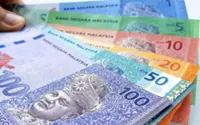PUTRAJAYA: Amid calls for the overnight policy rate (OPR) to be raised, the Prime Minister believes that increasing it to strengthen the ringgit’s value will not help the people, says Fahmi Fadzil.
The government spokesman said Datuk Seri Anwar Ibrahim believed the move would affect the people even more.
"There are parties who want Bank Negara to raise the OPR.
"What the Prime Minister is most concerned about is how this move will affect the people.
"I believe this may not be the best time to do so. But we will leave it to Bank Negara to decide," he told a press conference here on Wednesday (Feb 21).
ALSO READ: OPR likely to remain unchanged
To a question, Fahmi said the Cabinet did not discuss concerns about the sliding ringgit.
"We did not discuss this at today’s meeting.
"The Finance Minister II and Bank Negara have already addressed the matter. Analysts also shared their views and their projections for the ringgit," he added.
On Tuesday (Feb 20), Finance Minister II Datuk Seri Amir Hamzah Azizan said he expected the ringgit to strengthen against the US dollar this year as the US Federal Open Market Committee signalled the end of interest rate hikes after raising benchmark interest rates 11 times since March 2022 to the current rate of 5.25%-5.50%.
Asked if there was a need to peg the ringgit to the greenback, Amir Hamzah shrugged off the suggestion as he said the current situation was different from what happened during the 1998 Asian Financial Crisis.
ALSO READ: Bursa Malaysia stays positive ahead of OPR announcement
Amir Hamzah also spoke on the OPR that Bank Negara had maintained at 3% since May last year, saying it was at a fair level to facilitate economic growth.
Data from the Statistics Department showed that Malaysia’s inflation, measured by the consumer price index (CPI), remained at 1.5% in December, bringing the annual headline inflation for last year to 2.5% compared with 3.3% in 2022.
Core inflation increased at a slower pace of 1.9% in December against 2% in November, bringing the annual core inflation rate to 3%.





